#hope u guys do too
Explore tagged Tumblr posts
Text

[mob killing noises] BAM!!!!1111!!
#goodtimeswithscar#jimmy solidarity#solidaritygaming#ldshadowlady#wild life smp#wild life spoilers#life series spoilers#traffic smp#trafficblr#my art#HI THIS TOOK TOO LONG KJASDKLAJWKJAWEAWHAH#i tried to go for this very specific pop graphic style and disintegrated in the process#also the composition took three tries#very logicial thing to do 2 days before a midterm ik#HSJKDAEPFELELP HOPE U GUYS LIKE IT :D#i love the bamboys winners pov. bamboys i believe you in you together you are stronger <- incredibly delusional#listen it would be *REALLY* FUNNY#such a great team tho fr WOOOOOOO
10K notes
·
View notes
Photo

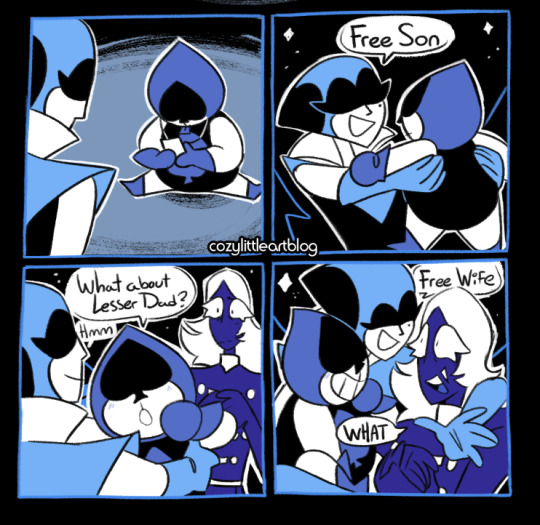
New Family Speedrun 00:09.12 (World Record Not Clickbait???)
#deltarune#queen#lancer#rouxls kaard#comic#art#doodles#SDFJKHJKDHSF THIS IS STUPID i said it on discord at like 2AM and then went Wait Thats Funny Actually#and u know what It Is#they're both the wife actually#this is also supremely old this is like WELL over a year old#queenkaard#my art#are you guys enjoying me clearing out my drafts. i hope u are. ancient artwork... now go look at my etsy im posting sooooo much stuff 2day#its been pointed out to be that tf2 doesn't have a spawn noise. you're right. i was confusing it for the respawn cabinets which is often#directly in range of a respawning character. so you usually do hear it pretty immediately after respawning#plus its used a lot in sfm animations too dshhsjdhjsf
8K notes
·
View notes
Text


#surprise couple!#mf ship bracket#mf ship bracket 2023#bonus round#kylo ren#rey#reylo#anti-reylo#star wars#unsure how to tag these i've been relying wholly on amanda's research and fandom experience.#ummmmm#king charles#royal family#camilla parker bowles#parasites in chief in their idiot hats#full credit to amanda messaging me at 4am like “i think reylo could beat king charles and camilla. food for thought”#hope u guys enjoy <3#like i said. this is my little thought experiment#anti reylo tag here like . do we need anti monarchy too. sorry this one is hateful
18K notes
·
View notes
Text
Thinking about the fact that Zuko has had every possible hairstyle Katara could have ever been into (from bald to long hair). He wields dual swords like Jet. He is a powerful bender as the fortune teller intended. He acts as a "vigilante of sorts" like Jet did. He can be a puppy like Haru. He can be a badass like Jet. Truly the most versatile ever. He's the 1000 in 1 boyfriend fr.
Not to mention the parallels with her ofc, if we're going to consider Blue Spirit x Painted Lady shenanigans, the mommy issues, the dry sense of humor, the nerdiness, the sense of responsibility... All things that match Her regardless of her possible interests in romantic partners. It's just too amusing to me.
My dude was truly dedicated to the cause. I salute him.
#zutara#it's just too funny I'm so sorry#oh so u like long hair? I had it. u like guys with dual swords? I have dao swords#oh so u like puppies? I can be one! I'll do everything u ask even carry your bags for u umprompted!!#ohh u want me to be bad??? dw I'll tie u to a tree if u like... is that alright with u#oh u like respectful? I can be that... I'll be super respectful#oh u like freaky? ok I'll be keeping your necklace around my arm so I can sniff it at all times.. hope u don't mind
955 notes
·
View notes
Text

have u guys seen that meme
#hollow knight#hollow knight fanart#silksong#hk#the hollow knight#thk#hornet#grimm#grimmnet#this meme was on twitter at least i hope u guys know what i’m talking about#this is me doing follower kick outs bc too many people followed me probably not knowing i love these two bugs kissing#my art
641 notes
·
View notes
Text

hi guys
#(he saw the barneys do this once)#(yk that one scene in black mesa blue shift where u ca flash light into a guy fixing the camera)#(or test the camera or something)#(and he falls over)#(i like that scene)#half life#hl1#gordon freeman#my stuff#i hope the angle isnt too confusing#frown
2K notes
·
View notes
Text
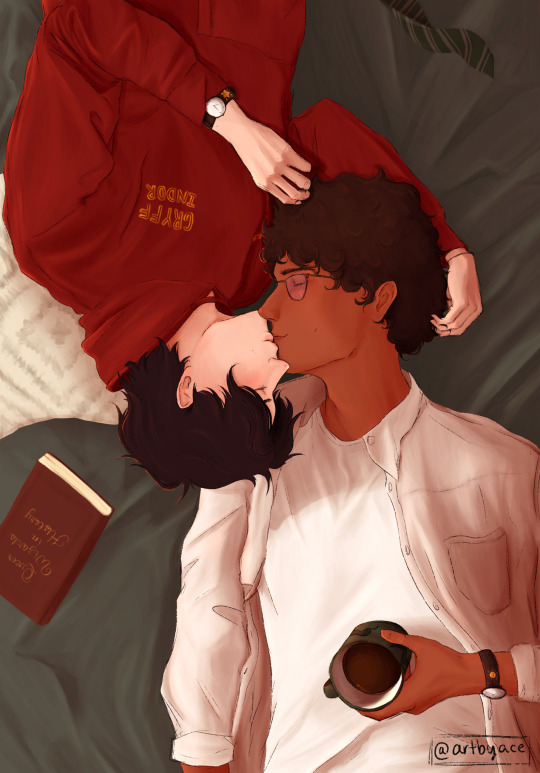
james and reg’s afternoon “study” sessions never actually involve much work getting done..
#marauders#marauders fanart#the marauders#james potter#regulus black#jegulus#jegulus fanart#starchaser#sunseeker#marauders era#digital art#procreate#i love this piece so much i hope u guys do too#james x regulus#my art
3K notes
·
View notes
Text
The Committee of Public Safety being a totally healthy work environment with no issues whatsoever compilation
First, some statistics:
Leaving in the middle of a session due to fighting: Collot (1 time), Robespierre (3 times), Saint-Just (4 times), Lindet (1 time)
Starting to cry during a session: Carnot (1 time), Robespierre (1 time)
Threatening your co-workers: Robespierre (2 times), Saint-Just (2 times, one of them a death threat), Couthon (1 time)
Calling your co-workers traitors/scroundrels/ counter-revolutionaries/aristocrats/conspirators/foreign agents: Billaud (1 time), Saint-Just (3 times), Robespierre (5 times), Collot (2 times), Barère (1 time)
Accusing your co-workers of aspiring towards dictatorship: Carnot, Billaud, Barère, Collot, Lindet (1 time)
Accusing your co-workers of wishing to destroy patriots: Robespierre, Collot (1 time)
Using physical violence against your co-workers: Collot (2 times?)
Defending your co-worker against another co-worker in a way that doesn’t at all make it seem like you’re into him: Saint-Just (3 times) Barère (1 time)
Saint-Just had such indifference that, about this time (return from Fleurus), he came one evening to propose to the committee a strange means of promptly ending the struggle of the revolution against the suspected and imprisoned nobles. These were his words: ”For a thousand years the nobility have been oppressing the French nation with exactions and feudal vexations of every kind, feudalism and nobihty exist no longer, if you want to repair all the frontier roads for the passage of the artillery, convoys, and transports of our army, order the imprisoned nobles to go to work daily and mend the highways.” […] When Saint-Just had finished there was a movement of silent indignation amongst us all, succeeded by a unanimous demand for the order of the day. I thought I ought to stipulate for the national character by saying to Samt-Just and the committee that we should be opposed to such a kind of punishment for prisoners even if the law pronounced it, that the nobility could be abolished by wise laws, but that the nobles always preserved in the mass of the people a rank, a distinction due to education, which prevented us from acting at Paris as Manus did at Rome. ”Ah,” exclaimed Samt-Just, “Marius was more politic and a greater statesman than you will ever be. I wished to try the strength, the temperament, and the opinion of the Committee of Pubhc Safety. You are not fit to combat nobility, since you cannot destroy it, it will devour the Revolution and the revolutionists. I retire from the committee.” He quickly withdrew, and set out for the army, until the moment when he thought himself capable of executing vaster projects with Robespierre, Couthon, and Lebas, his associates. Memoirs of Bertrand Barère, volume 2, page 139-140.
It is the inherent vice of bad laws, and, above all, of penal laws devoid of motive, which attack a great number of innocent people, to nullify themselves. Saint-Just did not understand that. He attacked me, and accused me of having put under requisition the relatives of several emigrants whilst the law punished them in their property. The committee appeared struck by this accusation, and asked him to explain himself and name some of the relations. He named several, but they were all unknown to us. He afterwards named Mademoiselle d’Avisard, of Toulouse, whose father was abroad. Here I replied that the fate of this innocent girl, who was but sixteen years of age, and obliged by the terrible laws against emigrants to subsist at Paris by manual labour, for she was then engaged in making gaiters for our soldiers, was in the highest degree worthy of compassion and interest. […] The Committee of Public Safety thought this explanation sufficient. It saw that it was only a wicked recrimination by Saint-Just, supported by the presence of Robespierre. Memoirs Of Bertrand Barère, volume 2, page 147-148.
Robespierre murmured a lot about the forms that we had established in Lyon for the execution of decrees: he constantly repeated that there was no reason to judge the guilty when they are outlawed. He exclaimed that we had let the families of the condemned go free; and when the commission sent the Convention and the committee the list of its judgments, he was not in control of his anger as he cast his eyes on the column where the names of the citizens who had been acquitted were written. Unable to change anything in the forms of judgment, regulated according to the decrees and approved by the committee, he imagined another system; he questioned whether the patriots of Commune-Affranchie were not vexed and under oppression. They were, he said, because the property of the condemned being specially intended, by article IV of the decree of July 12, to become their patrimony, we had greatly reduced their claims, not only by not judging only a quarter of the number of conspirators identified by Dubois-Crancé on 23 Vendémiare, or designated by previous decrees, but also by establishing a commission which appeared willing to acquit two thirds, as it happened. Through these declamations Robespierre wanted to entertain the patriots of whom he spoke, with the most violent ideas, to throw into their minds a framework of extraordinary measures, and to put them in opposition with the representatives of the people and their closest cooperators: he made them understand that they could count on him, he emboldened them to form all kinds of obstacles, to only follow his indications which he presented as being the intentions of the Committee of Public Safety. Défense de J-M. Collot, répresentant du peuple. Éclaircissemens nécessaires sur ce qui s’est passé à Lyon (alors Commune-Affranchie), l’année dernière; pour faire suite aux rapports des Répresentants du peuple, envoyés vers cette commune, avant, pendant et après le siège (1794)
Billaud Varennes: […] The first time I denounced Danton to the committee, Robespierre rose like a madman and declared that he saw my intentions, that I wanted to lose the best patriots. Billaud-Varennes accuses Robespierre during the session of 9 Thermidor
Why should I not say that [the dantonist purge] was a meditated assassination, prepared for a long time, when two days after this session where the crime was taking place (March 30 1794), the representative Vadier told me that Saint-Just, through his stubbornness, had almost caused the downfall of the members of the two committees, because he had wanted the accused be present when he read the report at the National Convention; and such was his obstinacy that, seeing our formal opposition, he threw his hat into the fire in rage, and left us there. Robespierre was also of this opinion; he believed that by having these deputies arrested beforehand, this approach would sooner or later be reprehensible; but, as fear was an irresistible argument with him, I used this weapon to fight him: You can take the chance of being guillotined, if that is what you want; For my part, I want to avoid this danger by having them arrested immediately, because we must not have any illusions about the course we must take; everything is reduced to these bits: If we do not have them guillotined, we will be that ourselves. À Maximilien Robespierre aux enfers (1794) by Taschereau de Fargues and Paul-Auguste-Jacques.
In the beginning of floréal (somewhere between April 20 and 30) during an evening session (at the Committee of Public Safety), a brusque fight erupted between Saint-Just and Carnot, on the subject of the administration of portable weapons, of which it wasn’t Carnot, but Prieur de la Côte-d’Or, who was in charge. Saint-Just put big interest in the brother-in-law of Sijas, Luxembourg workshop accounting officer, that one thought had been oppressed and threatened with arbitrary arrest, because he had experienced some difficulties for the purpose of his service with the weapon administration. In this quarrel caused unexpectedly by Saint-Just, one saw clearly his goal, which was to attack the members of the committee who occupied themselves with arms, and to lose their cooperators. He also tried to include our colleague Prieur in the inculpation, by accusing him of wanting to lose and imprison this agent. But Prieur denied these malicious claims so well, that Saint-Just didn’t dare to insist on it more. Instead, he turned again towards Carnot, whom he attacked with cruelty; several members of the Committee of General Security assisted. Niou was present for this scandalous scene: dismayed, he retired and feared to accept a pouder mission, a mission that could become, he said, a subject of accusation, since the patriots were busy destroying themselves in this way. We undoubtedly complained about this indecent attack, but was it necessary, at a time when there was not a grain of powder manufactured in Paris, to proclaim a division within the Committee of Public Safety, rather than to make known this fatal secret? In the midst of the most vague indictments and the most atrocious expressions uttered by Saint-Just, Carnot was obliged to repel them by treating him and his friends as aspiring to dictatorship and successively attacking all patriots to remain alone and gain supreme power with his supporters. It was then that Saint-Just showed an excessive fury; he cried out that the Republic was lost if the men in charge of defending it were treated like dictators; that yesterday he saw the project to attack him but that he defended himself.
”It’s you,” he added, ”who is allied with the enemies of the patriots. And understand that I only need a few lines to write for an act of accusation and have you guillotined in two days.” ”I invite you, said Carnot with the firmness that only appartient to virtue: I provoke all your severity against me, I do not fear you, you are ridiculous dictators.” The other members of the Committee insisted in vain several times to extinguish this ferment of disorder in the committee, to remind Saint-Just of the fairer ideas of his colleague and of more decency in the committee; they wanted to call people back to public affairs, but everything was useless: Saint-Just went out as if enraged, flying into a rage and threatening his colleagues. Saint-Just probably had nothing more urgent than to go and warn Robespierre the next day of the scene that had just happened, because we saw them return together the next day to the committee, around one o'clock: barely had they entered when Saint-Just, taking Robespierre by the hand, addressed Carnot saying:
”Well, here you have my friends, here are the ones you attacked yesterday!”
Robespierre tried to speak of the respective wrongs with a very hypocritical tone: Saint-Just wanted to speak again and excite his colleagues to take his side. The coldness which reigned in this session, disheartened them, and they left the committee very early and in a good mood. It was at this time that the division became pronounced in a very noticeable manner, and soon after we saw it claimed in the English papers that the Committee of Public Safety was divided. For some time now we had been distrusting each other, we were observing each other, we were no longer deliberating with them with this abandonment of trust. Until then Robespierre had done little; he constantly brought us his concerns, his suspicions, his shady expressions and his political bile; he only concerned himself with personal measures; he only drafted arrest warrants, he only dealt with factions, newspapers, the revolutionary tribunal. Nothing about the Government, nothing about the war, never having either views to propose or a report to make, he spent his time destroying our courage, despairing of the salvation of the country and speaking of its slanderers and its assassins; his favorite expressions were, everything is lost, there are no more resources. I no longer see anyone to save it, he always cried. When news of victory were brought by a courier, he spoke of upcoming betrayals, he tarnished our joy or attacked the representatives of the people near the victorious army. The more triumphant the Northern army was, the more strongly he denounced Richard and Choudieu; when the troops besieged Ypres, a stronghold and the key to West Flanders, a capture which, according to the decrees of the committee, was to open and ensure the campaign; Robespierre shouted against the representatives of the People near this army and had complaints written that the troops had not taken Ostend sooner. He seemed to us to be pursued by victories as well as by furies, and he often reproached the committee's rapporteur for the length and exaltation of his reports on the triumphs of the armies. Réponse des membres des deux anciens Comités de salut public et de sûreté générale (Barère, Collot, Billaud, Vadier), aux imputations renouvellées contre eux, par Laurent Lecointre et declarées calomnieuses par décret du 13 fructidor dernier; à la Convention Nationale (1795), page 103-105.
Robespierre, supported by the Jacobins, was the most influential member of the Committees without being the most wicked. His supporters were, however, in the minority; the plan to adjourn the sessions of the Convention had not obtained theor approval. One thought it necessary to oppose Robespierre with the masculine structure of Collot d’Herbois. A quarrel caused by the proposal of a proscription list to which Robespierre was precisely opposed (it involved the arrest of 14 deputies and citizens); this list, put up for discussion by the majority, passed to each member who added names to it, when it reached Robespierre, it had 32 deputies on it. Robespierre said: “I see five or six deputies unworthy of the character with which they are invested: it will be easy to induce them to resign: but I will lend neither my vote nor my signature to the revenge that you want to exercise.” Two friends of Robespierre were of his opinion: heads became heated, quarrels ensued: Robespierre was reminded of the fact he had voted against the Danton faction. The three opponents were treated as moderates. Robespierre, getting up angrily, said to them: “You are killing the Republic, you are the faithful agents of the foreigner who fears the system of moderation that we should adopt.” The session became so stormy that Collot used acts of violence against Robespierre. He threw himself at him and seized him by the flanks. He was about to throw Robespierre through the window when the latter's friends rescued him. Robespierre then declared that he was leaving the committee, that he could not honorably sit with executioners, that he would report this to the Convention. One saw the danger of publicizing this scene, blamed Collot's patriotic anger, and begged Robespierre, after having torn up the disastrous list, not to give the enemies of the Republic new means of attacking it. Robespierre seemed to calm down, but when Collot approached him to embrace him he refused and despite being urged not to he left. Mémoires de Barras, membre du Directoire (1895) page 349-350. In a footnote, there is to read: This argument between Robespierre and Collot is recounted in more detail in another autobiographic note by Barras: Robespierre having opposed a new measure of proscription, saying: “You are decimating the National Convention, you are arresting citizens whose republican energy you fear,” the boor Collot d'Herbois threw himself at him and, having seized him by the flanks, he was about to throw Robespierre through the window when the latter's friends freed him. This scene was followed by explanations. Robespierre observed that he could no longer sit with executioners, that he was withdrawing and that he would report to the Convention. The Committee which predicted his fall then opposed Robespierre's exit. The proscription list was torn up in his presence. The hypocrite Carnot and the honeyed Couthon told him that Collot's angry outburst was disavowed by the Committee, that the publicity of what had just happened would ruin the Government Committees and the Republic. He was implored to make the sacrifice of all resentment, and that this proof of patriotism was expected of him. Collot furiously addressed the two mediators, complained about the weakness of his colleagues and left the session. Robespierre, very affected, alternately observed his adversaries. He said to them as he left: “You would have made me look crazy if the abortive plan to throw me through the window had taken place. I see here beings more atrocious than the one who tried to execute that plan. He left ashamed of having accepted this assassination.” Robespierre withdrew and did not appear again for two months at the Committee.
At a time when the Convention was already in a high state of alarm [Robespierre] had circulated a list of five or six deputies. It was rumored that Robespierre intended to have them arrested as a little treat to himself, alleging their immortality as the motive of this proposed act of severity. Robespierre, informed of what was being imputed to him, asserted that such an idea was foreign to him, and, desirous of hurling it back at its authors, he maintained that it had originated with the majority of the committee, which, he alleged, had pushed its cruelty so far as to seek to include 32 deputies in its latest proscription-list. In vain did those who spoke in defence of Robespierre’s innocence of the idea and his humanity protest that it was he who had opposed this more than rigorous measure, that he had torn up the list with his own hands, and apostrophizing the Committee, had said: ”You are seeking to still further decimate the Convention; I will not give my support to such action.” Robespierre had indeed spoken these words just as, making an attempt to leave the committee, he had opened the door with the intention of being heard by the deputies and a large number of citizens who, attracted by the noise of a quarrel in the bosom of the committee, were waiting in the antechamber for the purpose of gratifying their curiosity thus aroused. Collot d’Herbois, furious at such hypocrisy, had sprung after Robespierre, seized him by his coat, and, dragging him towards him in order to bring him back into the room, exclaimed in his resounding voice, which, the door remaining ajar, was heard by all, both the committee and the people outside: ”Robespierre is an infamous scroundrel, a hypocrite; he seeks to impute us that of which he alone is capable. We love all our colleagues; we carry all patriots in our hearts. There stands the man who seeks to butcher them one and all!” Thus vociferating, Collot d’Herbois still remained his hold on Robespierre’s coat-collar. As I had at that very moment left the Convention on my way to the committee, I became a chance spectator of this fearful scene, whose violence was still not the greatest crime in my eyes. Behind it stood revealed the plot of premeditated vengeance, far worse than a mere outburst of anger. I was among those who compelled Collot d’Herbois to release his hold on Robespierre, who thereupon declared that he could no longer sit with his enemies, styling them a party of septemvirs, whom he would unmask and fight in the body of the Convention. He then took his departure, in spite of the entreaties of the entreaties of the committee, which, having been unable to conquer, sought to retain him in its midst. ”Let him go his way,” I said to those surrounding him. All my interest in him lay in the fact that I did not wish to see him strangled on the spot by a stronger man, and one perhaps as wicked as himself. I followed him for a short distance in order to see him safely home; he was trembling as he walked alone. Memoirs of Barras, Member of the Directorate (1895), volume 1, page 196-198. A variation of the anecdote found in the French memoirs?
Lindet has recounted that Collot d'Herbois had thrown himself on Robespierre and that he, helped by Carnot and Prieur de la Côte-d'Or, had to separate them. Councilor Carnot affirms that one day his brother threw a writing case at Robespierre’s head. Le Grand Carnot (1952) by Marcel Reinhard, volume 2, page 145. Reinhard cites ”family archives” as the source for this anecdote. Thank you for sharing @aedesluminis !
On 19 Prairial (June 7 1794), I was in the council chamber with Dumas and several jurors. I heard the president speak of a new law which was being prepared and which was to reduce the number of jurors to seven and nine per sitting. That evening I went to the Committee of Public Safety. There I found Robespierre, Billaud, Collot, Barère and Carnot. I told them that the Tribunal having hitherto enjoyed public confidence, this reduction, if it took place, would infallibly cause it to lose it. Robespierre, who was standing in front of the fireplace, answered me with sudden rage, and ended by saying that only aristocrats could talk like that. None of the other members present said a word. So I withdrew. Réponse d'Antoine-Quentin Fouquier, ex-accusateur-public près le Tribunal révolutionnaire de Paris (1795) page 52-53.
The day after the one on which the [law of 22 prairial] was issued, (June 11 1794) […] there was such a stormy scene at the Committee of Public Safety that Robespierre cried out of rage, since that time he only came two times to the Committee of Public Safety, and it was agreed that the Committee of Public Safety would hold its sessions one floor higher so that the people would not witness the storms that were agitating us. Billaud-Varennes at the Convention, August 30 1794. In fact, Robespierre is proven to have continuously signed CPS decrees up until June 30 1794.
At the morning session of 22 floréal [sic, prairial] (June 10 1794), Billaud-Varennes openly accused Robespierre, as soon as he entered the committee, and reproached him and Couthon for alone having brought to the Convention the abominable decree which frightened the patriots. It is contrary, he said, to all the principles and to the constant progress of the committee to present a draft of a decree without first communicating it to the committee. Robespierre replied coldly that, having trusted each other up to this point in the committee, he had thought he could act alone with Couthon. The members of the committee replied that we have never acted in isolation, especially for serious matters, and that this decree was too important to be passed in this way without the will of the committee. ”The day when a member of the committee,” added Billaud, ”allows himself to present a decree to the Convention alone, there is no longer any liberty, but the will of a single person to propose legislation.” ”I see well that I am alone and that no one supports me,” said Robespierre, and immediately he flies into a rage, he declaims violently against the members of the committee who have conspired, he says, against him. His cries were so loud that on the terraces of the Tuileries several citizens gathered, the window was closed and the discussion continued with the same passion. ”I know,” said Robespierre, ”that there exists within the Convention a faction that wants to lose me, and you’re defending Ruamps here.” ”It must be said,” Billaud rebutted, ”that with this decree you wish to guillotine the National Convention.” Robespierre responds with agitation, ”you are all witnesses that I am not saying that I want to have the National Convention guillotined.” He added, “I know you now,” addressing Billaud. ”And I too, know you as a counter-revolutionary,” responded the latter. Robespierre became agitated as he paced around the committee; and then speaking again with more calm, he carried his hypocrisy to the point of shedding tears. Réponse des membres des deux anciens comités de salut public et de sûreté générale… (1795), page 108-109. This very much sounds like the same session Billaud is describing above, that here got wrongly dated twice.
When Robespierre, dissatisfied with his colleagues, left the Committee – four décades before 9 Thermidor – he exclaimed while leaving: “Save the homeland without me!” ”The homeland is not a man!” R. Lindet would have replied. R. Lindet would also have energetically opposed the proposal of Saint-Just and Le Bas trying to have dictatorship given to Robespierre. He would have replied: “We did not make the Revolution for the benefit of just one person. Tell your master that I oppose this decree,” and he would have left. (Papers of R. Lindet kept in his family). Robert Lindet, député à l'Assemblée législative et à la Convention, membre du Comité de salut public, ministre des finances : notice biographique (1899). Thank you for sharing @saintjustitude !
It was agreed that the reform of the law of 22 Floréal [sic, prairial] was to be proposed in consultation with the Committee of General Security and that the internal divisions would be kept a secret as they were seen as capable of serving the enemies of the Convention and the revolutionary government. Robespierre became more of an enemy of his colleagues, isolated himself from the committee and took refuge with the Jacobins where he prepared to sharpen public opinion against what he called the known conspirators and against the operations of the committee. Only a few days he was seen reappearing at the committee, one evening it was to accuse Richard and Choudieu of the slow and uneven march of the Northern army, and of allowing Ostend to be evacuated during the siege of Ypres. He was told that Choudieu was very ill, that Richard’s conduct had always been good, that they had the confidence of the committee and that the general was carrying out the orders of the committee by securing Ypres. Robespierre affected great concerns about the operations of the armies of the North, he announced to us upcoming betrayals or even double inertia, he proposed to Billaud-Varennes to go to the North, to excite the energy and activity of the operations, but the members of the committee, being few in number and feeling the need to be reunited, opposed this dangerous measure, and Billaud remained. He had done the same thing some time earlier after a big fight (une alteration très-vive) with Collot d'Herbois, who reproached him with the fact he seemed to want to destroy the patriots, in his way of constantly denouncing them. The next day, Robespierre suggested that he go to Commune-Affranchie where royalism was regaining, he said, a frightening consistency. But this tactic of Robespierre was foiled both these two times by the very strong wish of the Committee of General Security which saw itself just as threatened as us by the maneuvers and denunciations of Robespierre. Réponse des membres des deux anciens comités de salut public et de sûreté générale… (1795), page 109-110. Note that on July 3 1794 we also find a CPS decree signed by Collot, Carnot, Saint-Just, Barère, Billaud and C-A Prieur ordering Couthon to go to the army of the Midi, an order that he never followed through with, indicating Robespierre might not have been the only one to try this tactic…
How many nights have not been fruitfully devoted to preparing everything that could strengthen the brilliant destiny of the Republic? How many battles have not been fought against the despotism of Robespierre? He had come to reject, either out of jealousy or malice, the most obviously salutary ideas. He once wanted to declare me a traitor and conspirator, because I had strongly supported the useful and wise proposal that Lindet made, to require horses and carriages in each section of Paris, in order to provide for the supplies of the armies. Défense particulière de J-M. Collot, représentant du peuple (March 1 1795)
At several times, we had seen from afar the plan to attack the National Representation, intending to resect it; sometimes Couthon, and more often Robespierre, denounced deputies to the Jacobins. One day, we read letters and information sent to the Committee of General Security: Robespierre demanded immediate arrest for the two deputies denounced in these letters: the arrest of Dubois-Crancé was discussed and rejected: that of Alquier was strongly advocated by Robespierre who accused us of softening against the culprits and thus losing the public sake; but that he would denounce these facts to the Jacobins. An arrest warrent was drafted against this Representative; but by a unanimous wish of the two Committees, without hearing Robespierre, the execution was postponed indefinitely and was never carried out. Robespierre returned to the Committee a few days later to denounce new conspiracies in the Convention, saying that, within a short time, these conspirators who had lined up and frequently dined together would succeed in destroying public liberty, if their maneuvers were allowed to continue unpunished. The committee refused to take any further measures, citing the necessity of not weakening and attacking the Convention, which was the target of all the enemies of the Republic. Robespierre did not lose sight of his project: he only saw conspiracies and plots: he asked that Saint-Just returned from the Army of the North and that one write to him so that he may come and strengthen the committee. Having arrived, Saint-Just asked Robespierre one day the purpose of his return in the presence of the other members of the Committee; Robespierre told him that he was to make a report on the new factions which threatened to destroy the National Convention; Robespierre was the only speaker during this session. He was met by the deepest silence from the Committee, and he left with horrible anger. Soon after, Saint-Just returned to the Army of the North, since called Sambre-et-Mouse. Some time passes; Robespierre calls for Saint-Just to return in vain: finally, he returns, no doubt after his instigations; he returned at the moment when he was most needed by the army and when he was least expected: he returned the day after the battle of Fleurus. From that moment, it was no longer possible to get him to leave, although Gillet, representative of the people to the army, continued to ask for him. Saint-Just awaited in Paris the determination that matters would take. In the morning he took care of the police bureau, and decided on arrests or correspondence to be signed; in the evening, he dealt with the detained persons to be judged, together with the public prosecutor, or made violent motions to the committee; he would often speak twenty times in an evening session, and would only speak out of sentence or out of anger when he was not subjecting himself to an affected and painful silence, or rather he would spy on the committee. Most often, he spoke to us about the conspiracies that were being formed in the prisons, he insinuated ideas on this point to the committee's rapporteur, and above all wanted us to refuse the help requested in the prisons. One day he wanted to reduce it to 15 sousand called us defenders of counter-revolutionaries, because we were arguing for the rights of humanity. Réponse de Barère, Billaud-Varennes, Collot d’Herbois et Vadier aux imputations de Laurent Lecointre (1795) page 101-103.
Finally one day during the meeting of the Convention [sic, Committee?], Robespierre asked if one wanted to decide to attack the new factions or to perish by their maneuvers; he attacks and indicts several deputies in turn. An impatient member of the committee, oppressed by this ever-reviving project, stood up and said to him with violent severity: “Robespierre, for a long time you have been trying to lure us with terror into the project of striking our colleagues. You keep complaining about them, attacking them, gathering grievances and denouncing them. This is what the Hébertists and other punished counter-revolutionaries did. There are six of us here who profess the dogma of the integrity of national representation: if you want more, I declare to you, in my own name and in that of my colleagues who work with me and whose feelings I know, that you will only achieve national representation through our bloody corpses. These are the obstacles that we oppose to every ambitious person.” The same member of the committee has since repeated these words to the National Convention while speaking to Robespierre himself on 8 Thermidor. (Billaud) Robespierre felt the force of this unanimous response, bit his brakes, accused us of being defenders of the factions and threatened us with denunciation to the People and to the Convention, he moved away from the committee for some time and never stopped accusing us at the Jacobins, while he was preparing the speech he read on 8 thermidor. Réponse de Barère, Billaud-Varennes, Collot d’Herbois et Vadier aux imputations de Laurent Lecointre (1795) page 103
On 10 messidor (June 28) I was at the Committee of Public Safety. There, I witnessed those who one accuses today (Billaud-Varenne, Barère, Collot-d'Herbois, Vadier, Vouland, Amar and David) treat Robespierre like a dictator. Robespierre flew into an incredible fury. The other members of the Committee looked on with contempt. Saint-Just went out with him. Levasseur at the Convention, August 30 1794. If this scene actually took place, it must have done so one day later, 11 messidor (June 29), considering Saint-Just was still away on a mission on the tenth.
In several evening sittings the two committees united to devise a means of revoking the law of 22 Prairial. After several conferences during the month of Messidor, they called Robespierre and Saint-Just into their midst to force them to revoke this law, which was the result of a combination unknown to all the members of the government. The meeting was very stormy. Vadier and Moise Bayle were the members of the Committee of General Surety who attacked the law and its authors with the greatest force and indignation. As to the Committee of Public Safety, it declared that it had no part in it, and plainly disowned it. All were agreed to repeal it next day. After this decision Robespierre and Saint-Just declared that they would appeal to public opinion, that they saw that a party was formed to assure immunity to the enemies of the people, and thus to destroy the most ardent friends of liberty , but they could warn good citizens against the united manoeuvres of the governing committees. They retired uttering threats against the members of the committees. Saint-Just called Carnot, amongst others, an aristocrat, and threatened to denounce him to the Assembly. This was like a declaration of war between the two committees and the triumvirate. Seeing Carnot, the most indispensable worker in the committee, thus attacked on account of his courageous honesty and great military talent, I rose up against Saint-Just. Carnot seemed astonished at these threats of denunciation — terrible indeed from a man who two months before had denounced and destroyed Danton. On behalf of my attacked colleague, I said to this little dictator: ”I do not fear you, I have always defended our country openly and without personal interest I will answer you in the tribune if you lay the blame on Carnot. You know that I make reports that are favourably heard by the Assembly, I will make one of those reports in favour of Carnot and against you.” From this moment Robespierre and his friends acted with hostility against us, and especially against me. One day they even sent Robespierre the younger to me, whom they had recalled from the Basses Alpes. This lunatic entered the committee under pretext of giving an account of his mission to Nice; but instead of fulfilling this duty, he addressed me in a furious tone: ”You have maltreated my brother. We missed you on the 31st of May, 1793, but we shall not miss you on the 31st of May, 1794.” He left still threatening us. Memoirs of Bertrand Barère, volume 2, page 167-169.
I obtained from Barère the following fact: During a session of the Committee of Public Safety, Saint-Just and Robespierre reproached Carnot for being an aristocrat (the latter was frightened and shed tears, Barère said) and threatened to denounce him as such at the Convention. Then Barère said: In that case I will make public that you are angry with the man who organized the victory. Testimony of Filippo Buonarroti, cited in Études robespierristes; La corruption parlementaire sous la Terreur (1917) by Albert Mathiez. This sounds very much like the same incident Barère is describing above.
Having come to the Committee of General Security three or four days before 9 Thermidor (July 23), I was told that the two committees of public safety and general security would meet between noon and one o'clock in the place where the first held its sessions, and that I had to go there. Having asked what the reason for this meeting was, I was further told that it was to mutually explain the division which, according to what Robespierre had claimed on different occasions to the Jacobins, existed between the government committees. As I did not have the slightest knowledge of this alleged division, and as I was completely ignorant of what Robespierre had said to the Jacobins, I went to the Committee of Public Safety where I found several of my colleagues who had preceded me, and above all Robespierre, walking with long strides, glasses on his nose and throwing at everyone, from the height of his grandeur, looks which marked the deepest contempt. After a few minutes of silence, Saint-Just spoke and said in his exordium that although the youngest among us, he spoke first since we had often seen young people open opinions which enlightened those who were older; he then spoke on the necessity of organizing a constitution and ended up making a pompous eulogy of Robespierre, calling him the martyr of the liberty of his country and assuring him of all his esteem. This praise having been applauded and confirmed by Le Bas, Robespierre believed that it was time to burst out and first complained in general about his numerous enemies, whom he said were too cowardly to ever allow themselves to persecute him; he then indicted Amar, Vadier, Jagot, Carnot, Collot and Billaud, reproaching them for the fierceness with which they tore each other apart, which, having given rise to explanations, was the cause of Carnot telling him to his face that he did not like him, and Billaud and Collot repulsed his attacks with so much vehemence, energy and noise, that I more than once invited Collot to speak more quietly. Now, in the heat of this explanation, I heard for the first time that Robespierre was also criticized for having intended to put on trial the 72 of our colleagues who were still incarcerated; I also heard him being told that he had complained that one had not yet made use of this infinity of denunciations which were in the Committee of General Security against others of our colleagues, that nothing had been done so as not to provoke new troubles and to maintain concord and peace between us. This storm having passed and Robespierre having seemed to calm down, one agreed on ending the session, and that Saint-Just would make a report on behalf of the two Committees to inform the National Convention that they were not divided. Philippe Rühl in a speech held March 23 1795
Robespierre bitterly reproached us, at the committee, on 5 Thermidor (July 23), for having had the statue of superstition, erected on the Tuileries basin, brought down during the night. Réponse des membres des deux anciens comités de salut public et de sûreté générale… (1795), page 96.
You (Dubois-Crancé) say that Robespierre being absent the other members of the committee therefore agreed to lose you. It was rather to save you. Twice at the end of Messidor and on 7 Thermidor (July 25 1794) Couthon wanted to have the committee adopt the draft of the act of accusation against you; twice he was rejected. The last time especially, seeing himself rejected by us with a sort of cold and firm indignation, he went so far as to request from the committee the refusal that we made to deliberate on these serious denunciations which he brought against Dubois-Crancé. We opposed him in political principle the integrity of the legislative body and the danger of supporting the liberticidal projects of the aristocrats and tyrants in coalition; in public consideration, his reconciliation with you at the Jacobins, and in principle of justice the lack of legitimate evidence. Couthon left the committee furious, and threatened to denounce or silence our refusal to the people and the Convention. B. Barère à Dubois Crancé: Réponse (1795), page 29
This decisive scene, to unmask the conspirators, happened at half past midnight, from the 8th to the 9th of Thermidor (July 26 to 27). Several members of the two committees were gathered. We worked on the ordinary operations of the committees, but we worked with that sad impatience accompanies a terrible outcome, which all circumstances told us would be imminent. Saint-Just kept a profound silence, observed from time to time the members of the committees, and showed neither concern nor rest. He had just sent to Tuilier, his creature, the first 18 pages of the report he was to make the next day; and he then told us that he could not read the report to the committee, of which he only had the last pages. Collot d'Herbois come over from the Jacobins, where he had just been insulted, threatened, proscribed, so to speak, he seemed very agitated. Collot-d'Herbois had barely entered when his colleagues ask him why people left the Jacobins so late? Saint-Just asks him coldly, ”what's new at the Jacobins?”
”You’re asking me what's new? Are you the one who ignores it? You, who are in league with the main author of all these political quarrels, and who only wants to lead us to civil war: you are a coward and a traitor: it is you who deceives us, with your hypocritical air; you're just a box of apothegms, and you're spying on us in the committee. I have just convinced myself of this by everything I have heard; you are three scoundrels, who believe you are blindly leading us to the loss of our homeland, but liberty will survive your horrible plots.”
Here Elie Lacoste rose in fury and said: “there is a triumvirate of knaves, it is Robespierre, Couthon and Saint-Just, who are plotting against the homeland.”
Barère adds: ”who are you then? Insolent Pygines? Who wants to see the spoils of the homeland split between a cripple, a child and a scoundrel; I wouldn’t give you a barnyard to govern.”
Collot-d’Herbois continues: “I know that perhaps you will have us assassinated this night, perhaps we will be hit, by your plots, tomorrow morning, but we are determined to perish at our posts; and before then, perhaps, we will be able to unmask you. Among us, you are making plans against the committees. You have, I am sure, in your pockets calumnies leveled against us; you are a domestic enemy and a conspirator.”
Saint-Just was struck by this speech; he turned pale, and he did not know what to answer. He opened one of his pockets, stammering, and placed some papers on the table; no one came to read them.
Collot-d’Herbois continues and says to him: “You are preparing a report; but from the way I know you, you have undoubtedly written our act of accusation? So what hope do you have? What lasting success can you expect from these horrible betrayals? You can, perhaps take our lives, have us murdered, but you will not deceive the virtue of the people. Do you believe that when it sees itself deprived of its defenders, of men who sacrificed themselves for it, it will not tear you to pieces? Do you believe that it will sit tight tomorrow, a quiet spectator of your crimes? No, there will be no unpunished usurpation when it comes to the rights of the people.”
Saint-Just then fell back on his report, and said that he would join the committee the next day and that if it did not approve it, he would not read it. Collot continued to unmask Saint-Just; but as he focused more on depicting the dangers praying on the fatherland than on attacking the perfesy of Saint-Just and his accomplices, he gradually reassured himself of his confusion; he listened with composure, returning to his honeyed and hypocritical tone. Some time later, he told Collot d'Herbois that he could be reproached for having made some remarks against Robespierre in a café, and establishing this assertion as a positive fact, he admitted that he had made it the basis of an indictment against Collot, in the speech he had prepared. Saint-Just, during that night, prolonged his allegations and his remarks so much, that it was quite obvious that he only dragged on in this way, in order to prevent us from taking measures against their conspiracy. Several members of the committees, impatient to so much falsehood, went into the next room and deliberated whether they would have him arrested immediately, but they thought it was wiser to refer it the next day to the National Convention, after having known the intentions of Saint-Just, in the report he was to make. It is even worth noting that when we drew up a picture of the unfortunate circumstances in which public affairs found itself, each of us looked for measures and proposed means; Saint-Just stopped us, acting astonished, as if not being in the confidence of these dangers, and complained that all hearts were closed, that he knew nothing, that he could not conceive this quick way of improvising lightning at every moment, and he conjured us, in the name of the republic, to return to fairer ideas, to wiser measures. This was how the traitor kept us in check, paralyzed all our measures and cooled our zeal. At five o'clock in the morning, Saint-Just fled and the members of the committee sought means to paralyze the armed force of Paris, which the scoundrels had in their hands. Réponse des membres des deux anciens Comités de salut public et de sûrété générale… (1795) page 105-107.
#Carnot: I DON’T LIKE YOU!!!#Collot: let’s get PHYSICAL PHYSICAL#SJ: within 48 hours I can have your head seperated from your shoulders#robespierre: why won’t you guys just let me DO WHAT I WANT!?! 😭#Billaud: bc you’re a COUNTER-REVOLUTIONARY#Couthon: no u also i’m reporting you guys to the convention#Barère: don’t worry carnot i will save you from this little dictator saint-just! 🤓#prieur prieur lindet saint-andré: just chilling in the corner hoping to survive another session#or if anyone knows any drama with them too please share!#robespierre#saint-just#collot d’herbois#barère#carnot#billaud-varennes#frev#frev compilation#toxicmeter *explodes*#french revolution
217 notes
·
View notes
Text

Sorry for drawing him tied up it will happen again
#HII UHHH SORRY AHAHHAHEGJD#i worked way too hard not to post this okay listennn#took me like 15 years to render okay HWJEGDJDB#i did a background for once...the things i do for gabv1el art...#hope u guys like it tho sniles so sneetly VWJEGJDD#ultrakill#uno's art#gabv1el#suggestive#the whiplash has lots of potential hear me ou💥
364 notes
·
View notes
Text
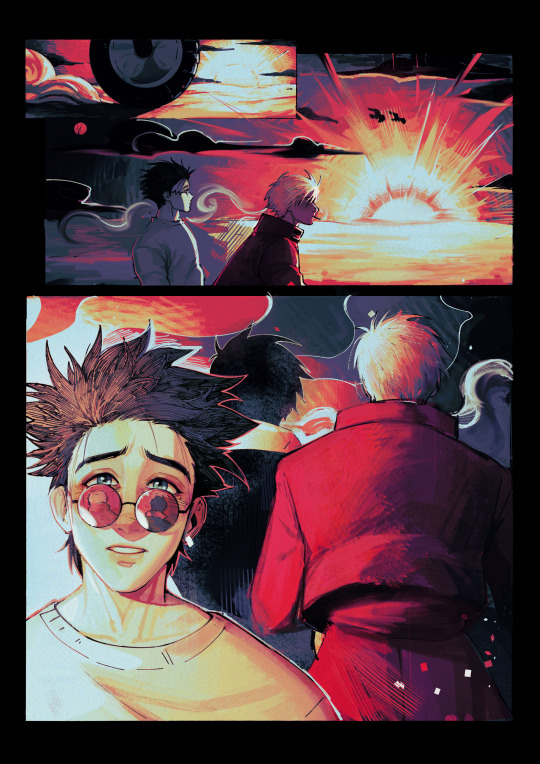
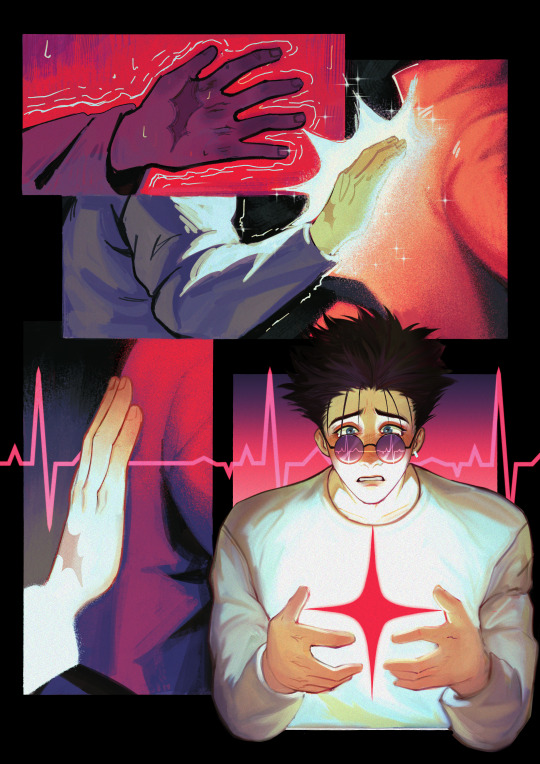
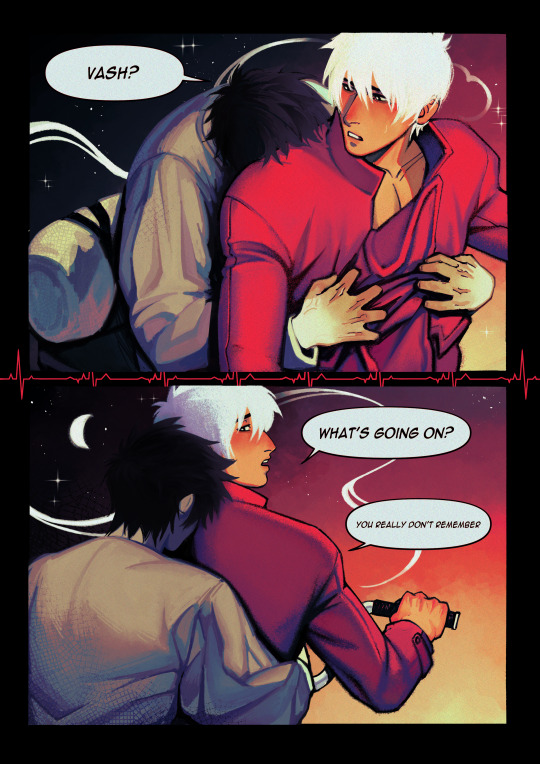
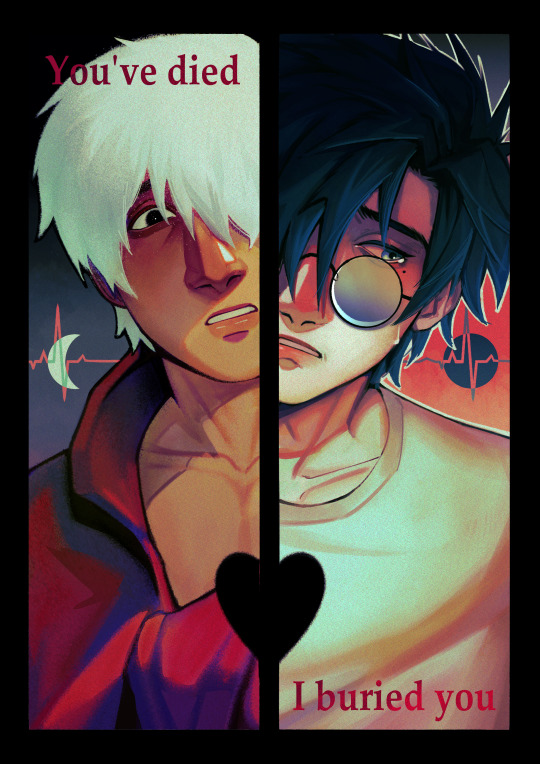
Second Chance Part 3
#trigun#vashwood#artists on tumblr#trigun stampede#trigun maximum#vash the stampede#nicholas d. wolfwood#digital art#vash#trimax#second chance comic#damn i've cried drawing this#hope u do too#vash is so okay guys.
1K notes
·
View notes
Text

a nostalgic feeling ♪
#enstars#my art#fanart#ensemble stars#shu itsuki#4piece#fuyume hanamura#hanamura fuyume#i saw that fuyume could sew and i knew i wanted to draw these two together sewing but#then i remembered how kuro and shu would sit side by side embroidering as kids..#its mentioned in shu's sub story isnt it?#or maybe its nocturne.. i read them too close together im not sure#anyhow i just thought it would be really sweet if shu could bond with the new kids and sort of heal his inner child#by doing things he did when he was younger#auugh#anyway.. imagine theyre both making things for loved ones...#shus making something for mika.. yumes making something for esu#WAHHH#i hope u guys see my vision#thank u
416 notes
·
View notes
Text
// pentiment spoilers (implied ig but still there)

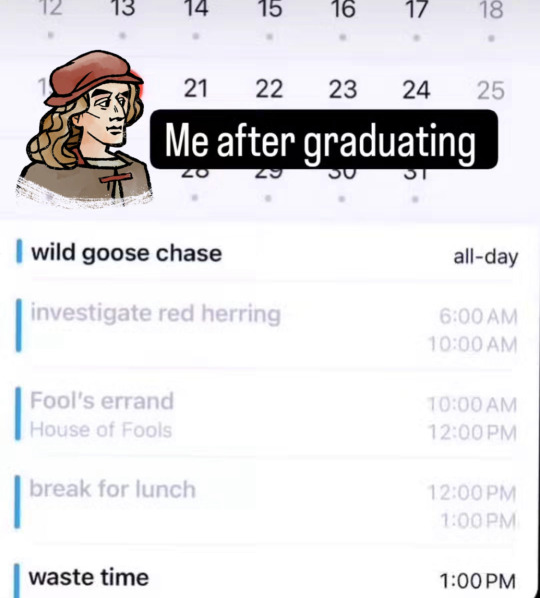
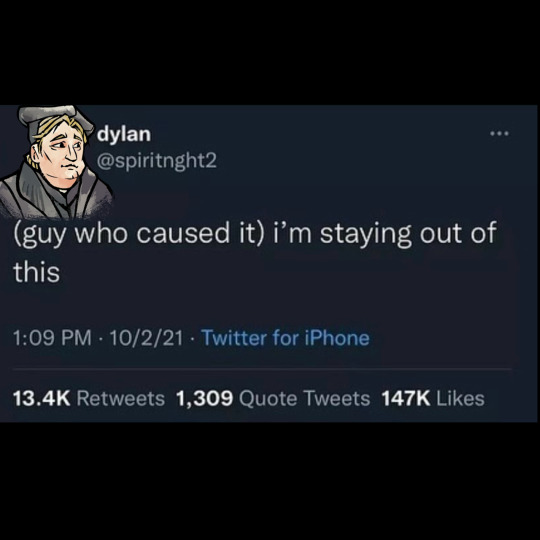

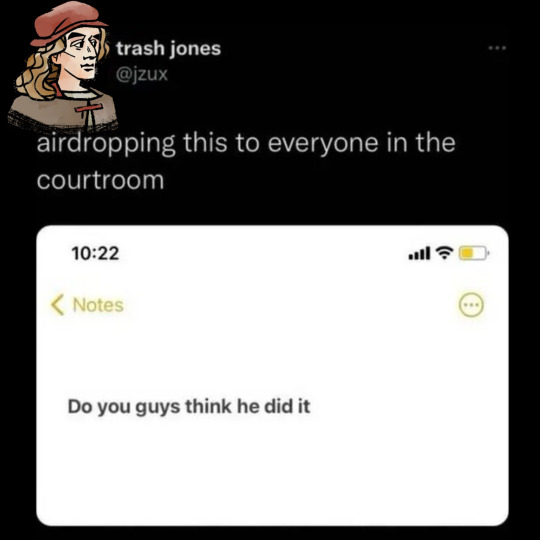



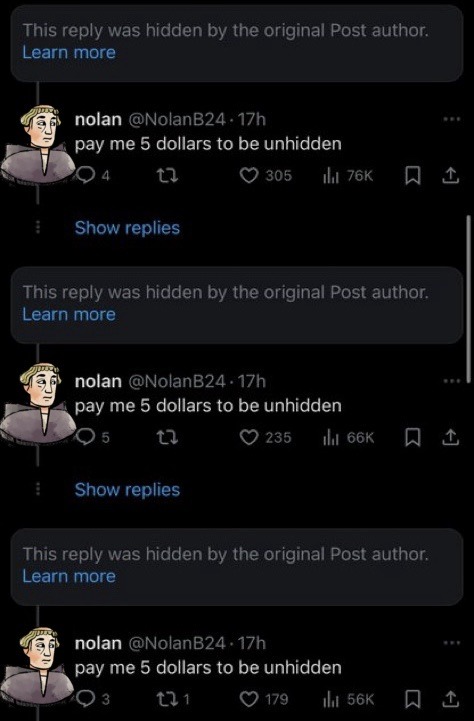
more of these because i was inspired
#i hope you guys see my vision on some of these#the claus and andreas one could also work the other way around i feel#also unrelated but why is there like no father thomas content out there sorry#will be talking abt big spoilers here btw#but like i loved him in my first playthrough idk if i was dumb but i thought he was nice and neeever suspected him#even now i can still appreciate him although i do not ‘like’ him for obvious reasons but i enjoy spinning him around in my head#anyway idk ig i was expecting to see more stuff abt him online like posts or fanart or whatever but there’s like nothing !?#to the like 2 people who’ve made fanart of him and/or a discussion post about him pls know u are everything to me#anyway sorry idk when tags became father thomas discussion time but i have a lot to say abt him tbh#pentiment#pentiment spoilers#andreas maler#father gernot#father thomas#brother mathieu#brother rudeger#ok too lazy to tag them all sorry guys#can write about father thomas for 6 long tags but can’t tag like 7 characters
269 notes
·
View notes
Text
pairing: hoshina soushirou x gn!reader (no prns)
request: a reader that keeps messing around w him and at some point they mention they like him but then hoshina thinks theyre just playing... ..but they r not and he doesnt quite get it at first because hes so used to them joking around and then he ends up overthinking the whole thing until reader actually goes up to him to kiss him (or hug him very tight!!!!!!!! or both maybe!!!!!!)
maybe he liked them too but that thought didnt sit right with him because he doesnt believe hes worthy of something like that
notes: mentions the reader's face "flushing", reader is rather lively/outgoing, reader is not a fan of horror and is more a fan of romance, reader is a hoshina stan, one part is inspired by a scene in wakaba no komorebi, omg why are there so many notes I'm so sorry TY FOR THE REQ!!
wc: 2800

A new day, a new chance for you to shoot your shot at none other than your vice-captain of the third division.
You were always messing with him. This ranged from embarrassing pranks a grade school boy would menace his crush with, all the way to borderline hitting on him. There wasn’t a single day you’d forget to remind him he was stunning, and you’d always be bragging about him to the officers in the first division, regardless of the fact that you had absolutely nothing to do with the things you were bragging about. Simply put, you were loud about Hoshina.
Yet, every day, he'd brush you off and tell you to get to work. You didn't let that mind you much though, because you could tell he wasn't actually upset. You liked him unconditionally, and as long as you weren't actually bothering him, you couldn't care less if your feelings weren't returned. Well, you did care, but that wasn't going to stop how you felt for him.
Now, you said all of that, but naturally, you were still scared to just put your feelings out there so you hadn’t actually told Hoshina you liked him. You assumed he knew, but if you said it out loud, you’d have to hear an answer. And that, you were not ready for.
However, you weren’t going to stop messing with him anytime soon. Hoping one day he’d actually fall for you and one day you’d have the courage to properly tell him how you felt.
You were in the cafeteria with the rest of the division, having your breakfast while mindlessly scrolling through your phone, when you saw a post about a new movie in theatres. Immediately your mind went to possibly inviting Hoshina and you scrolled right back up, trying to find out what it was about. Horror. You sighed and continued to scroll. Horror was absolutely not your favourite.
“Oh, is it finally out?” you heard a voice from behind you say— your favourite voice say.
“Would you like to go?” you asked, whipping your head back to see none other than Hoshina Soushirou. Just the sight of him and your heart would flutter. How you loved him. “Together? Us? Just us? You and me?”
“Oh, like we have time to go,” he said.
“Man,” you said, knowing he’d say that. The entire defence force in general had been a lot busier ever since the appearance of so many identified grade kaijus. However, it did make you wonder if that meant he would if he did have time. No, he’s just declining your invitation politely, you’d tell yourself, bringing you back to your senses.
You’ve done this since always, and you do this every time without fail. Whenever a new shop had opened, or a new movie to watch had come to theatres, you'd always shoot your shot— hoping he'd say yes one day. Yes to a date.
Although you were used to getting turned down, it still wasn’t the best feeling. Recently, you've been letting it get to you far more than you used to. Maybe after all these times, the rejection did start to have an affect on you. Maybe you were falling for him even harder recently, or maybe you were starting to hope for your feelings to be returned.
Perhaps a relaxing day at the movies was exactly what you needed. Maybe you’d ask for a day off next week— just to go watch a movie you liked.
So you did exactly that, you filed a form to Captain Ashiro, requesting a day off anytime the next week. Preferably on a Tuesday, because movie tickets were cheaper on Tuesdays.
A few days later, you were called over to her office. You assumed it was just to let you know if you could have your day off and if so, when it was. To your surprise, when you walked in, it wasn't Ashiro but rather Hoshina there, working away.
“Hoshina?” you asked, pleasantly surprised. “I didn't expect to see you today.”
“You didn't?” he asked, genuinely perplexed. “But this is my office?”
“Your office? I thought it was Captain Ashiro’s?” you said.
“It used to be, but I took it over a little while back,” he said. “It's just a lot faster for me to do the paperwork.”
“Oh… I see,” you said, rather surprised you weren't already aware. There was a moment of silence.
“It was rather recently that I had officially started working here,” he said, somehow noticing that you were dejected. Oh, how did he always know exactly what to say? You were never going to get over him at this rate. “Anyways, you requested a day off next week?”
“Um… yes,” you said. Now you felt a little awkward about going to a movie alone, and you really hoped he wouldn't realize where you were going.
“On a Tuesday… are you going to see that movie after all?” he asked and he noticed you stiffened a little, so he immediately followed with, “Sorry, you don't have to answer that. You're absolutely free to take that day off.”
“I am,” you said. Half a lie, because there was no way you were watching a horror movie, let alone by yourself. But you were going to the movies. That was true. “It's been a while since I watched a movie in theatres, I realized.”
“I've never gone alone actually,” he said, imagining you were planning to go alone. “Or are you going with someone?”
“No, I'll be by myself,” you said, but instinctively you asked him out again. It was practically in your subconsciousness to do so. “Unless you'd like to tag along?”
There was a long pause before he said anything, and his unreadable expression only made the silence feel longer. You were expecting a quick rejection again, so the silence was absolutely killing you— you hadn't expected it one bit.
“Actually, I'd like to,” he said. “If that's okay with you, of course.”
You couldn't believe your ears. What did he say? You couldn't have possibly heard that right. What had he said?
On the other hand, he had no idea why he said yes. Why after turning you down all these times? Why now? He had turned down every offer of yours because he knew you were just messing around. You didn’t feel about him the way he felt about you. He knew this because you had done this since the moment you joined, and you couldn’t have liked him back then— you hadn't even know him yet.
But still, he hoped you were serious.
“You're joking,” you said.
“Were you?” he asked. This must be why he said yes. He wanted to know so badly— he was rather exhausted of playing the guessing game with you.
“Not at all,” you said. You thought he had known, but perhaps not. “I've never been. Not for a moment.”
“Then, let's go,” he said with his poker face on, but he was a little shaken. He didn't think you were at all serious, let alone that serious.
“Hoshina, is this a date?” you asked, and you could tell your cheeks were flushed. However, there wasn't much to be embarrassed about at this point, so you might as well have asked before you drove yourself insane.
“Okay…” you said, but you were spaced out. You had no idea what had prompted this all of a sudden, but this was the moment you had been waiting for, for your whole life. Yes to a date.
A date? Was it a date?
“Would you like it to be?” he asked. You had no idea what he was thinking.
“Yes,” you said. “Of course…”
“Then, let's go on a date,” he said. “On Tuesday, at 2pm. I'll pick you up from your unit and we'll go and watch a movie.”
It was yes to a date. A date with none other than the love of your life. You were going on a date with Hoshina Soushirou.
You left the office soon after, thanking him as you left, and you were lost in thought. You truly felt like the world around you had stopped, but at the same time, the time passing was a blur. You thought it’d be forever before your long awaited day, and you’d have plenty of time to calm yourself down and prepare, but it had rolled around before you knew it.
You put on what you personally thought was your best date outfit, but you had no idea if he’d like it. You really hoped he would. Now, you were sitting around, waiting for him to come pick you up. It was still 10 till 2, but he was always ahead of schedule— he hated making people wait, so he was always early. A few minutes later, you heard a few footsteps and some rustling outside your door, and you were pretty sure it was him. You waited for a knock, but it wouldn’t come.
Quickly, you opened the door and it was him, waiting by your door with his phone in his hand, opened to your messages with him.
“Oh,” he said. “Sorry, were you waiting?”
“No,” you said, immediately. “I just finished getting ready. Why didn’t you knock?”
“Well, I’m early,” he said. “Didn’t want to rush you.”
Gosh, you were on a date. With him. You had actually never seen him in anything other than what he wears at the defense force, and as much as you liked that training shirt he had on, he looked so incredibly gorgeous today. And this was just for you. He wore a black corduroy turtleneck, and a simple long coat to go over it. You were still so lost, how had you gotten to this point in the first place?
“You’re stunning today,” he said to you as he smiled a little and you swear you felt your heartrate spike. Did he even know what he was doing?
“Not to mean you aren’t usually…” he said immediately. “Sorry, I never say the right things when they count, do I?”
“No, I thought my heart was going to stop,” you said, frankly. This was the way you always were, there was no point in getting flustered all of a sudden. “You’re gorgeous everyday, but even more so today.”
“Well, I’d have to be glad our date is today then,” he said.
While the two of you walked to the theatre, it was rather quiet. Far more quiet than you usually were. Suddenly, you were so nervous, and there was nothing to say to him. So many questions filled your head but none of them felt appropriate to ask. You felt like the spell would break if you took one wrong breath. You wanted to know why he was here with you today. Why he said yes all of a sudden, why he took a precious day off to go on a date with you, and what he was thinking when he said yes. You wanted to know how he felt about you, or at least how he felt about this date.
“I’ll go get us tickets,” you said, as soon as you got to the theatre. “Please pick a snack and a drink in the meantime, I’ll get the tickets quick.”
“Oh, don’t be silly, I’m getting the tickets, and the drinks and snacks, for that matter,” he said. “Besides, we haven’t even decided on a movie yet.”
“We haven’t?” you asked. “I thought we were watching the movie that came out the other day?”
“What? Why would we?” he asked, genuinely confused. “You don’t even like horror." He pointed at another poster on the wall. "Why don’t we watch that one? Romance is more your type of thing, isn’t it?”
You thought you’d cry. If there was one thing that was worrying you about this date, it was the movie. Horror really wasn’t for you, and you weren’t sure if you could watch the movie without showing it.
“How did you know?” you asked.
“It’s obvious,” he said. “You’ve never asked me out to a horror movie, have you?”
Just how did he notice? “But didn’t you want to watch that one?” you asked.
“Please, I can watch that whenever, on my own,” he said. “I’m here with you today. I’d be a horrible date to make you watch it with me.”
“Thank you,” you said, starstruck. “At least, let me pay for it then?”
“No way,” he said. “I’m taking you out today.”
“No, I asked you out,” you said.
“Don’t care!” he said and went off to get the tickets and snacks.
You were in love with him, and you were going to tell him. You were sure he knew, but you had to tell him properly. It wasn’t even that you were hoping for him to return your feelings, you just wanted to tell him.
You thought you wouldn’t be able to focus on the movie at all, but you were, strangely enough. You were watching a cliche romance movie that couldn’t possibly be about you and Hoshina, no matter how much you tried to stretch the narrative, but you loved it. It was a sweet movie, a type that you've always loved, and you were watching it with the one you always loved. You couldn’t be happier.
So as soon as the movie was over, you went for it.
“Hoshina, I love you so much,” you said, and kissed him. On the lips.
His eyes were wide and his cheeks were faintly flushed. You weren’t expecting that, not even for a moment.
“You’re serious?” he asked.
You were confused, did he think you were playing around all this time? “Yes, of course,” you said. “I’ve loved you for forever.”
“Since… when?” he asked.
“Since the day you saved me, 3 years ago,” you said, immediately. It was like you had waited all your life to answer this. “You definitely don’t remember, but I remember like yesterday.”
He wouldn’t reply, but he was still looking at you surprised, so you continued on.
“I thought I had told you this actually. Not the part that I liked you, but the part that you saved me. I joined because of you, Hoshina,” you said. “Yes, you’re my vice-captain and the love of my life, and I’m one of your officers, but you were my hero and I was your biggest fan for all this time.”
Something in him shifted. It felt like someone had woken him up from a weird haze, and showed him how much colour there is to the world. You joined for him. Not for Mina, not for Gen, but him. To you, he was a hero. To the one he treasured most, he was irreplaceable.
“I love you too,” he said, with the softest smile you had ever seen from him. He was serious, you could tell.
“No way,” you said.
“I do,” he said, but he could tell that you were a little skeptical, or at least puzzled. “I love the way you work hard, the way you joke around, but actually care so much. I love the way you give everything your all. I love the way you always smile when you see me— it makes me feel so special. You make my day, absolutely every single day.”
It took everything in you to stop yourself from sobbing, but that made Hoshina laugh. He kissed you this time, and tears rolled down your cheeks anyway.
Wiping your cheeks with the pad of his thumb, he kissed you on the forehead.
“I absolutely adore you.”

BONUS:
Later that day, you were going to open up the one cardboard box you still hadn’t unpacked. The one filled with your posters and merch of Hoshina you had collected through these years. You were hiding them, because you thought it’d be a little too weird if you had those just hanging around, but finally, they’d see the sunlight. You would never have even imagined this day when you had those in your room, dreaming of him. If only you could tell your past self— just how thrilled you would’ve been. Well, not that you were any less thrilled now.
The next time Hoshina came to visit you in your room, he was utterly flustered, it was absolutely adorable. He couldn’t believe people actually bought the merch they sold of him, let alone put them up— and in the room of his loved one nonetheless. But he’d be lying if he said he didn’t like it, because it made him so incredibly happy.
He was thrilled that you did, in fact, love him the way he loved you.

#hoshina x reader#hoshina soshiro x reader#kaiju no8 x reader#kaiju no.8 x reader#kn8 x reader#soshiro hoshina x reader#hoshina x you#bros im sorry why is this SO LONG#THANK U SM FOR READING#i really hope you enjoyed but genuinely was this even all that interesting. i cannot even tell. (I FEAR IT WASNT TRULY)#is hoshina just the right amount of sweet or is he ooc sweet. that is the question. (I FEAR THE ANSWER I REALLY DO)#sorry guys in my head this sounded a lot better like a whole lot better#THANK U SM FOR THE REQUEST THIS WAS SO SO SWEET I HAD SM FUN WRITING THIS ACTUALLY#sweet hoshina will always be so fun to write i will never be free from this#request#omg also im so sorry if you find the 'hero' thing corny#i love the word hero unironically#i think its such a lovely word that's viewed as too corny to say now (SO SAD)#also so insanely unrelated but wakaba no komorebi is a shoujo manga w like multiple couples#and one of the mls in one of the shoujos is LITERALLY SHOUJO HOSHINA I KID YOU NOT#hes literally SOOOOOOOO my god hes just SOOOOOOO such a ml. so hoshina.
330 notes
·
View notes
Text

PHIL DAY PHIL DAY PHIL DAY
@amazingphil thanks for shaping my personality for the last decade may u have the loveliest birthday ^_^
#HAPPY! BIRTHDAY! PHIL!#i had like. assignments to do and such. but frankly ive been putting them off for the sake of finishing this#WHICH. WORTH IT IDK!#been watching a guy since you were twelve years old and it’s the first time you actually make art for his birthday… what a world#philip michael lester u have done so much for me. for lesbians everywhere. hope u know this. love u. hbd#amazingphil#phil lester#phanart#and i suppose dan is here too. a bit. pointing. what manner of rat is this
537 notes
·
View notes
Text



love poem (typical)
#my writing#my stuff#words#poetry#poems#i doubt that these tags will go anywhere so mainly for archiving purposes#guys (slamming head into table affectionately¥) i fear your favorite mr worldwide manwhore is once again In Love#i have this disease where everywhere i go i fall in love with people and then i write about them#what can i help it though she’s devastatingly lovely#i texted my friend three weeks ago and i was like#i am suffering from an excess of kind beautiful and extremely hot women in my life and she was like#this is a good problem to have. i mean it is also kind of giving’will hsge to do crazy troubleshooting later’#but for now i’m love love and i get to write poems about a beautiful girl so#wahoo! and yipee! and the like#hope love is with all of u too. in every shape. love of friends and lovers and family and all the other things and people
125 notes
·
View notes
Text

{ [...] Some leviathans have been observed using their threat displays to hunt, dazzling their prey into sensory shock before striking. And isn't it mesmerizing? You can't look away. You can't look away. You can't look away. }
#windyart#hades#eel hades#ocean#challenger deep#YEEHAW im honestly so proud of this hello. it ended up looking so swag just for a quick thing#i love this guy so much. he is so colors#babygirl thats not bi lighting you are being hunted down for sport#anyways THERE U GO!!! this one comes with a small little blurb too because heehooo#what if i added more lore to my CD posts... i should do that#hope u like this one mwah
1K notes
·
View notes